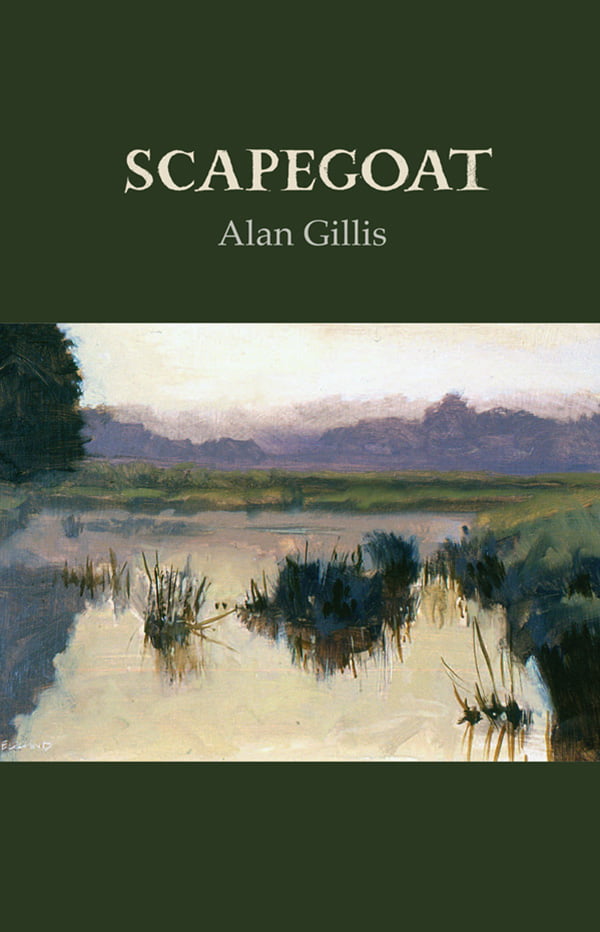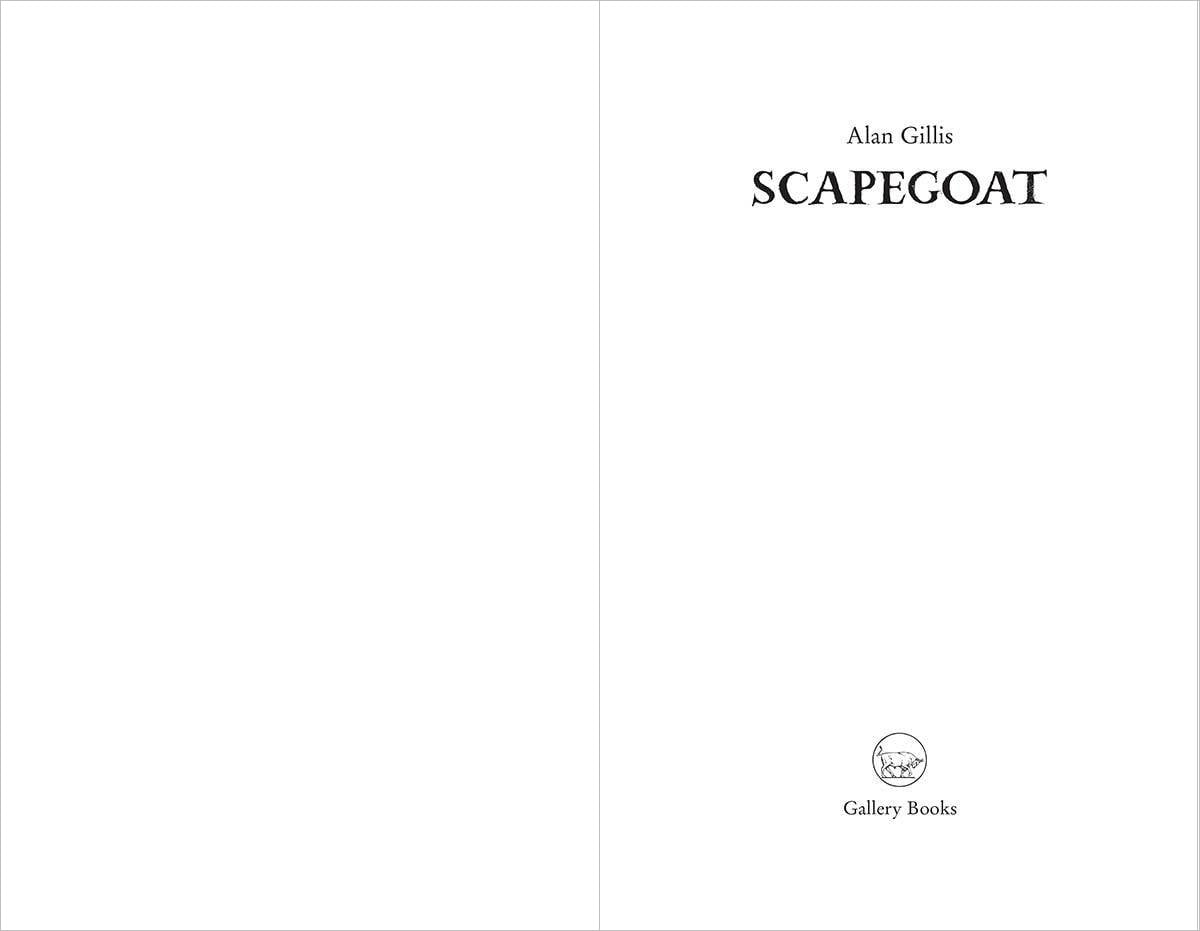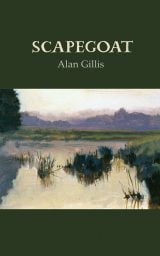The poems in Alan Gillis’s fourth collection, Scapegoat, find themselves on the edge of the ordinary, carrying the ills and beauty of our times within themselves, cast between what is, and what might be. Epiphanies of impinging memories from childhood and adolescence become poems in which tales from Northern Ireland’s past vex the present, exploring themes of desire and fear, violence and shame, forgiveness and change. Other poems face up to the ‘zeitgeist’ of today, with a shifting mix of humour and ire, love and turbulence.
Veering between scabrous satires and hymns of praise, dream-like fantasias and clear-eyed reckonings, Scapegoat finds itself on the brink between civility and the wilds, striving to come to terms with the maelstrom of living. With searching depth and vivacious exuberance, Scapegoat gives us the calm before the storm, the wreckage after the storm, and, for the hell of it, the eye of the storm itself.
‘Alan Gillis . . . is a master of catching his reader by surprise, landing them in places they wouldn’t anticipate, often by way of profane description of poetry’s “sacred” places. Scapegoat includes more of Gillis’s characteristically rumbling love poems and wildly inventive pastorals. It is also much concerned about thinking through how poems can compete with and supplement our increasingly visual, online culture.’ — John McAuliffe, Irish Times
‘Scapegoat makes no compromises, and asks the reader to implicate themselves in some strange and unpalatable ideas, but the journey (or quest) is its own valuable reward. Wholeheartedly recommended.’ — davesblog
Gillis’s skillful modulation of tone and his aphoristic precision allow him to create moments that ring true to feeling and afterthought, articulating the complex emotional resonance of memory.
The opening poem, ‘Zeitgeist’, a series of four sonnets, introduces the reader to Gillis’s particular music; phonetically rich and conversational, his blend of irreverence and serious existential consideration is uniquely fitted for considering a wide variety of contemporary blights. Here, as elsewhere, Gillis considers the energy and excessiveness of urbanization, the poem’s diction evoking the populated environment it describes and providing a catalogue of voices for the collection:
Outside on shopped streets swarm mothers,
alpha males, screenagers, old, young, lovers,
the homeless, the bewildered, ill, unique,
the beautiful with their self-as-boutique —
so many, thronged into one body.
‘No.8’, the collection’s long and often humorous poem, recounts commuter proceedings in a sprawling, essayistic form. With charm and insight, Gillis takes us from the minutes prior to boarding the bus, to boarding, ‘Everyone looks like/they’re in an art installation/where the central concept is/they’re completely normal,’ to the wandering stream of consciousness inspired by gazing out the window . . .
The emotional life of memory is palpable throughout the collection, suggesting that, ultimately, paths carved through memory occupy a dual place in the past and present.
— Moya Catherine Popa, Poetry
Alan Gillis too is a master of catching his reader by surprise, landing them in places they wouldn’t anticipate, often by way of profane description of poetry’s “sacred” places. Scapegoat includes more of Gillis’s characteristically rumbling love poems and wildly inventive pastorals. It is also much concerned about thinking through how poems can compete with and supplement our increasingly visual, online culture.
Instagrammatic is suitably appalled when the photo of a “glorious day” turns out to be “skew-whiff [ . . . ]we were not like ourselves. Life-/sized cardboard cut-outs of Mario and Luigi // in a shop-window display / look more true to life”. Instagram’s failure is the poem’s opportunity, and Gillis repays its treachery by lurching into six full-rhymed stanzas of flick-book description and talky improvisation so excessive and full of vagary that no one image could do justice to it:
and your stomach is a sand dune,
your dress is a lambent field of wheat blown gently in June,
your legs are identical twins,
your chin is a dove or, at least, you have a bar of Dove soap for a chin,
and when I reach for you I press against a windowpane,
scattered, dripping, splattered drops of shivered rain
Gillis is as interested in renewing traditional forms as he is in indulging his appetite for the seemingly “non-poetic” ephemera of pop culture. The wonderful River Mouth asks why “I burst forth into song this morning in the kitchen. / There was no reason to sing. No one to listen”, which extends into a meditation on why poetry might still be said to matter, a question it answers with its own copious descriptive power:
Useless to ponder
where that happiness went to, where it had been:
I can’t even catch the dark-yellow-light-brown-flecked green
while I follow the many-voiced river through downs
and drumlins, train stations at the border of town,
past warehouse, vast retail lots, car-stained
miles of suburban families detained
in dream homes. To apprehend such density
of life would be to hold fresh to memory
each page of each book on a full forty-foot shelf.
Scapegoat, like de Paor’s collection, should recommend itself to any anyone interested in Irish writing now. Gillis’s fellow spirits also include Pat McCabe, Kevin Barry, Paul Durcan and Rita Ann Higgins, whose ability to take a hammer to polite pieties does not involve sacrificing the ability to write affectingly about how we live now.
— John McAuliffe, The Irish Times
Selected as a “Next Generation Poet” by the UK’s Poetry Book Society in 2014.






